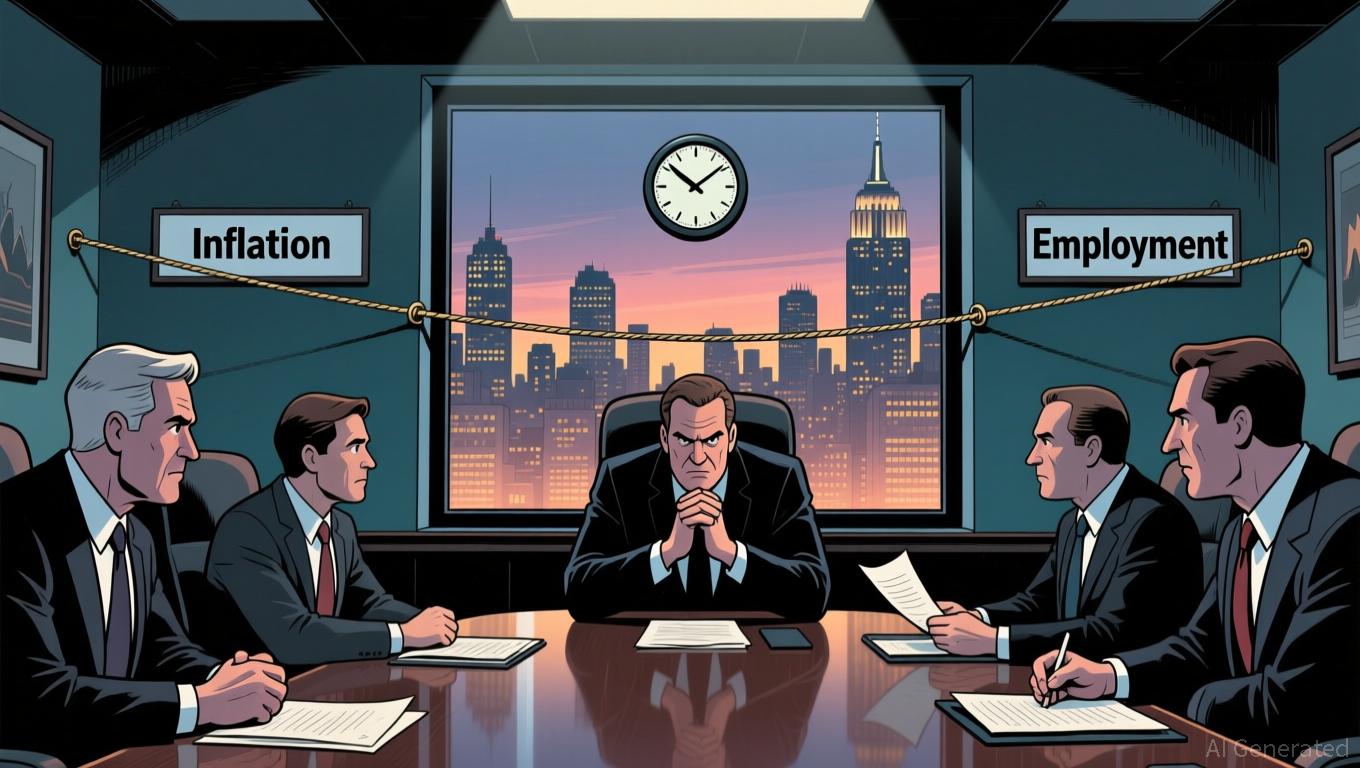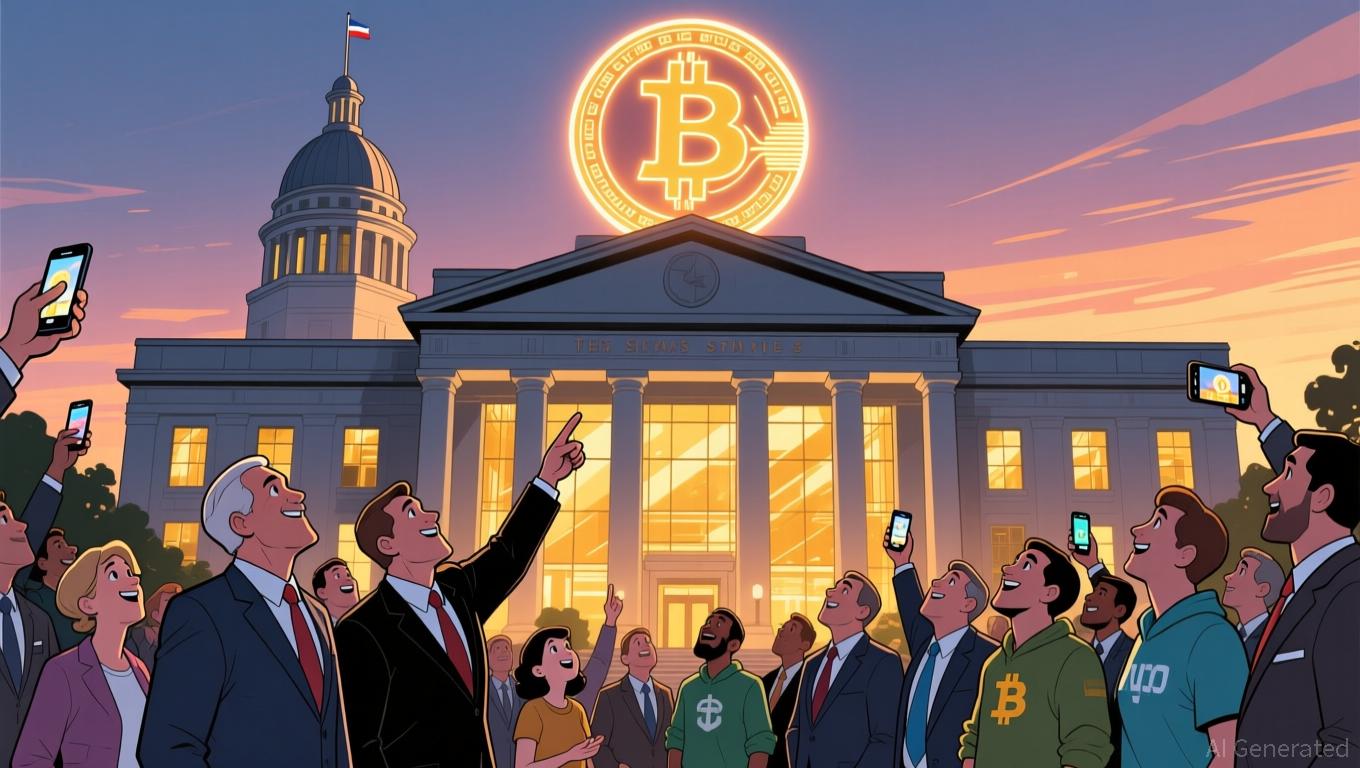Fed Faces Balancing Act Between Inflation and Employment Amid Political and Market Scrutiny
- Fed officials remain divided on a December rate cut amid conflicting inflation and labor market signals. - Boston Fed's Collins opposes cuts, citing persistent inflation risks despite recent 119,000 jobs gain and 4.4% unemployment. - Trump's tariff-driven policies face criticism for sustaining high prices, mirroring Biden's inflation challenges. - Crypto sector shows resilience with $4.6B Q3 VC funding, as regulators push for digital asset tax clarity under Trump . - Fed's December decision will balance
Federal Reserve policymakers are split on whether to lower interest rates in December, as mixed economic indicators fuel ongoing debate. Boston Fed President Susan Collins, who has consistently urged caution, stated again on Friday that she "remains inclined to oppose" reducing the federal funds rate from its current 3.75%-4% band,
Recent employment figures have further complicated the outlook. The September jobs report, released earlier this month, revealed a modest increase of 119,000 nonfarm jobs, while unemployment ticked up to 4.4%—suggesting the labor market is losing steam
The political environment adds another layer of complexity for the Fed. President Donald Trump is facing increased criticism over his administration’s economic strategies, which have not yet succeeded in bringing down persistently high consumer prices. Despite promises to tackle inflation, Trump’s tariff policies have kept products like beef, coffee, and hardware

Market responses have been varied. While the anticipation of rate reductions often lifts risk assets, some industries have moved against the trend. DexCom Inc., a company specializing in diabetes technology, saw its stock climb 3.9% after New York Fed President John Williams suggested possible easing, even as the firm faces a separate class-action suit
In the digital asset sector, regulatory issues are becoming increasingly urgent. More than 65 crypto organizations, including the
As the December meeting draws near, the Fed’s choice will depend on whether it decides to prioritize fighting inflation or supporting the job market—a dilemma that has shaped its decisions for years. With markets preparing for potential turbulence and political stakes rising, the central bank’s next steps could define the economic landscape for the coming year.
Disclaimer: The content of this article solely reflects the author's opinion and does not represent the platform in any capacity. This article is not intended to serve as a reference for making investment decisions.
You may also like
Bitcoin Updates: Texas Adds Digital Gold to State Reserves, Leading the Way in Crypto Protection
- Texas becomes first U.S. state to allocate $5M in public funds to Bitcoin via BlackRock's IBIT ETF, purchasing at $87,000 per BTC. - The temporary investment aims to diversify state reserves and hedge inflation, with plans for direct self-custody pending 2026 RFP. - Governor Abbott's June 2025 legislation established a $10M Strategic Bitcoin Reserve, positioning Texas as a crypto policy leader alongside gold and Treasuries. - While boosting ETF inflows and attracting institutional interest, critics warn

Buffett Embraces AI: Berkshire Gains $1.4 Billion from Alphabet Investment
- Berkshire Hathaway earned $1.4B profit from its Alphabet stake as shares surged 19.2% in November, marking its 10th-largest holding at $4.33B. - Buffett's shift to tech stocks reflects Alphabet's AI/cloud expansion, including Gemini 3 AI model and $100B AI infrastructure fund. - Alphabet's $34% Google Cloud growth and $2B Turkey data center partnership highlight its enterprise AI dominance ambitions. - Market optimism boosts Alphabet's $4T valuation despite regulatory risks, with BNP Paribas upgrading sh

Bitcoin Updates Today: Buddy's BTC Wager: The Ongoing Struggle in Crypto Between Downward Adjustments and Upbeat Expectations
- Prominent crypto investor Buddy reopens $18.63M BTC long position amid market volatility, signaling renewed confidence in Bitcoin's long-term potential. - Institutional adoption grows as KindlyMD holds 5,398 BTC ($681M) and Harvard increases ETF stake to $443M, while Japan/UAE tighten crypto regulations with 2026 liability rules and DeFi oversight. - BTC rebounds above $88K amid Fed rate cut speculation but remains 30% below October 2025 highs, with analysts divided on $60K-$200K 2025 price forecasts. -

Bitcoin Updates Today: Texas Leads as First U.S. State to Establish Bitcoin Reserve, Creating a National Benchmark through BlackRock ETF
- Texas becomes first U.S. state to allocate $5M to Bitcoin via BlackRock’s IBIT ETF at $87,000/coin, using $10M from general revenue. - The move under Senate Bill 21 aims to diversify state treasuries, hedge inflation, and position Texas as a crypto policy leader. - While New Hampshire and Arizona explore similar reserves, Texas’s direct investment sets a precedent for institutional adoption. - Market analysis notes mixed timing, with Bitcoin near a potential local bottom but facing institutional selling